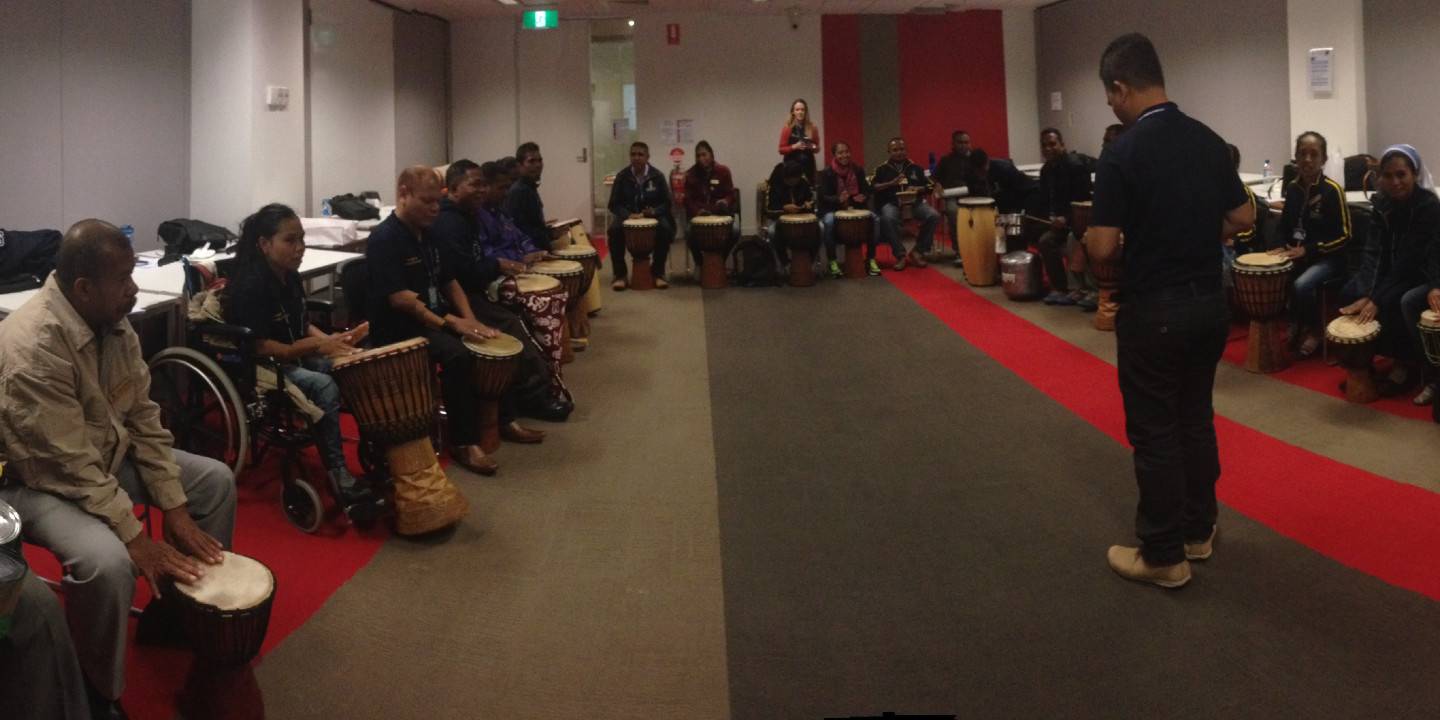
Contributing to the disability sector in Timor-Leste
Research 21 Aug 2020 6 minute readAustralia Awards alumni from Timor-Leste are having an impact in the disability sector, at both policy and community levels, recent research finds.
The Australia Awards Global Tracer Facility has published a case study focusing on alumni from Timor-Leste who undertook scholarships and fellowships relating to disability and development in Australia. The 16 alumni graduated between 2011 and 2016.
Managed by the Australian Council for Educational Research (ACER) for the Australian Department of Foreign Affairs and Trade (DFAT), the Facility was established in 2016 to evaluate the long-term outcomes of Australia’s investment in the Australia Awards and predecessor government scholarships and fellowships.
The research shows that since their return to Timor-Leste, alumni from this cohort have been at the forefront of disability inclusive development through active engagement in advocacy, policy implementation and service delivery. Their shared experience in Australia has helped create a critical mass of professionals who are using their skills and networks to advocate for the rights and protection of people with disability in Timor-Leste.
Alumni in this Case Study have all remained involved in the disability sector through formal employment and voluntary positions, with responsibilities for disability policy implementation, program delivery, training and capacity building, research and advocacy.
A combination of factors have enabled alumni to successfully apply their skills in the workplace and contribute to the development of the disability sector. These relate to a strong personal commitment to disability inclusion and positive on-award experiences, such as academic support and professional and social immersion activities.
Four of the Case Study alumni have a disability and are working closely with government, aid agencies and civil society to improve the rights and living standards of people living with disability in Timor-Leste. Alum Mr Joaozito dos Santos, the Executive Director and founder of the National Disabled Peoples Organisation, Ra’es Hadomi Timor Oan (RHTO), is playing a key role in shaping national policies by contributing to the drafting of the National Disability Action Plan and providing ‘technical advice to the government’ to support better integration of people with disability into all sectors of society. This includes the use of inclusive language and assessment tools to promote better access for people with disability to government subsidies, justice, livelihood opportunities and healthcare.
Another alum, Mr Reis, collaborated with former lecturer Dr Caroline Ellison to develop an Australia Award fellowship program at Flinders University for key frontline workers in the disability sector in Timor-Leste. This has led to a critical mass of Australian trained alumni making large contributions to disability inclusive policy, allied health services and the rights of people with disability in Timor-Leste.
On return to Timor-Leste, Mr Reis and a number of Flinders University fellowship alumni continued to engage the professional assistance of Dr Ellison to facilitate the establishment of a new disability department at the National University of Timor-Leste (funded through the British Council). Mr Reis has also facilitated the ongoing organisational links between Flinders University and a number of Timorese institutions under the New Colombo Plan Mobility program. Mr Reis helped to arrange for Australian students to volunteer with a school and a rehabilitation centre. This partnership has created an opportunity to deepen the connection between Australian and Timorese students and organisations.
The findings of this case study demonstrate that this group of alumni is having an impact in the disability sector, at both the policy and community levels. Their Australian education and in-Australia experiences have contributed to alumni’s positive views of Australia, which have formed the basis for maintaining ongoing professional and personal links with their Australian counterparts. Through their workplaces and networks, alumni are helping to further cultural understanding between the two countries.
To learn more about the Australia Awards Global Tracer Facility findings and to read the full report, visit the Department of Foreign Affairs and Trade website: [Insert link]. ■
Find out more:
To read the full Timor-Leste case study, by Jo Doyle and Yung Nietschke, visit the Australia Awards Global Tracer Facility website.
For further information about the Australia Awards, visit the Department of Foreign Affairs and Trade website.
